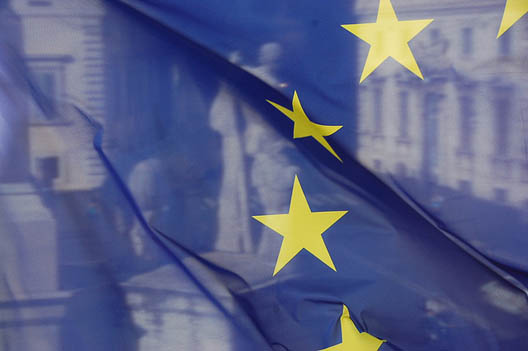
Despite the Headlines, the Center Holds in the EU Legislature
Europe’s political establishment is reeling from the earthquake of victories by anti-European Union parties of the far right and left. These have come in the United Kingdom (UK Independence Party, or UKIP), France (Front National), Greece (Syrzia), Austria (Freedom Party) and Denmark (although the People’s Party is in a more moderate category than the other victors). While the vote will bring stronger far-right and far-left voices into the next European Parliament, the European People’s Party looks poised to retain the largest vote share, followed by the Socialist grouping. Hence, the center is actually holding in the European Parliament despite the headlines.
The most significant implications of these elections are within European nations themselves, not the parliament. As many European voters place less importance on Europe-wide elections over national elections, they find it easier to cast a protest vote in European Parliament elections. However, the emergence of UKIP and the FN as the largest vote-getters in the United Kingdom and France respectively will help legitimize these parties as credible competitors in national elections. Hence the biggest threat from these results is to the Conservatives in the UK and the rightist Union for a Popular Movement (UMP) in France. As a result, British Prime Minister David Cameron likely will drive an even tougher negotiation for EU reform, making a British exit from the EU conceivable. French Conservatives will soul-search and perhaps seek new leadership as they strategize on how to capitalize on the Socialists’ weaknesses, something the FN is doing in spades now.
Like most Europeans, most Americans do not appreciate the significance of the European Parliament elections. But as Brussels, and the Parliament in particular, assume greater power, these elections more directly impact US interests.
First, they directly impact who will be elected as the new president of the European Commission, a critical partner to a transatlantic agenda. The results put wind in the sails of Jean-Claude Juncker, the former prime minister of Luxembourg, who is the European People’s Party candidate and works well with the United States.
Second, this vote will affect two issues of particular interest to the United States:
- A NEW TRADE DEAL. The ambitious project to further open economic relations between North America and Europe – the Transatlantic Trade and Investment Partnership, or TTIP, will need the support of the European Parliament. Most of the far-right parties that just gained strength in this election oppose this trade deal. So the odds for concluding a deal have gone down, although centrist votes could still deliver majority support.
- RUSSIA. This election result increases the ranks in parliament of those willing to advance Russian interests. Far-right parties combined with far-left parties in an unholy alliance could serve as Moscow’s Trojan Horse in the European Parliament, complicating a range of issues on which the US government seeks Europe’s cooperation in dealing with Russia. These include economic sanctions over Russia’s intervention in Ukraine, the TTIP deal, energy policies to resist monopolistic behavior by Gazprom, the Russian state-owned gas provider to much of Europe. The credibility of the European Parliament will rest on whether it resists Russian interests, which have already perverted proceedings in another European institution, the Council of Europe.
Damon Wilson is executive vice president of the Atlantic Council.
Image: (Photo: Flickr/Waldopics/CC License)
